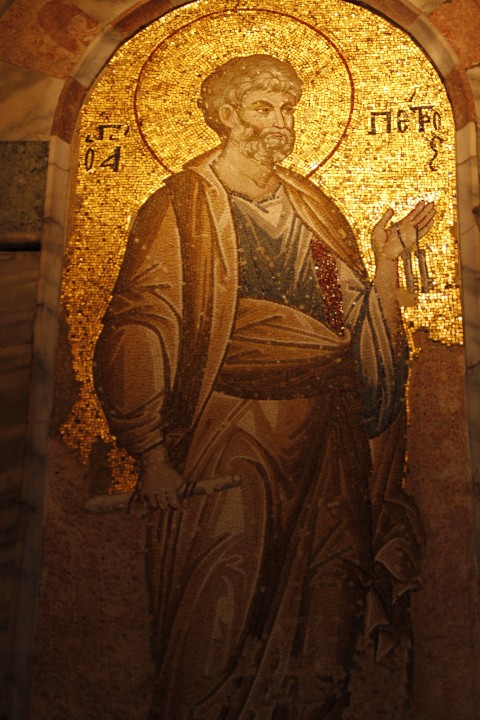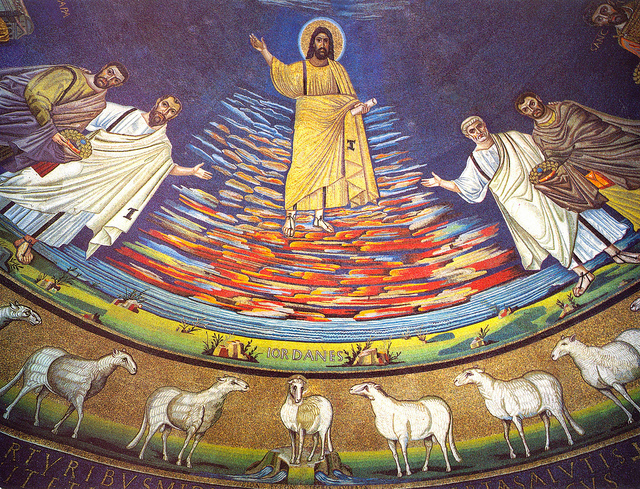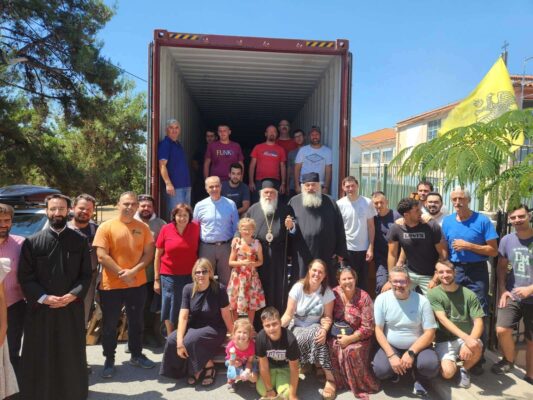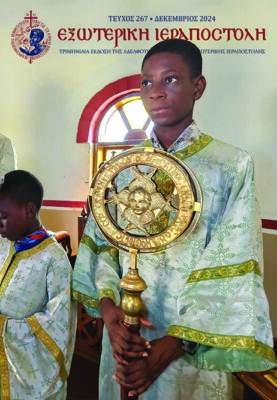
Saint Peter was the brother of Saint Andrew the Proto-Cretan. He came from the poor, humble town of Bethsaida and his father was Jonah of the tribe of the patriarch Simeon, according to the synaxis of St. Nicodemus. He lived poorly, practicing the trade of a fisherman. He was, moreover, a devout man who loved the Law of God, as evidenced by his immediate response to the divine invitation. When his father died, Peter took as his wife the daughter of Aristobulus – brother of the Apostle Barnabas – and they had children.
The meeting with the Saviour was a shocking and subversive moment in his entire “paved” life. The invitation of Jesus and his immediate acceptance of it with its consequences , that is, his abandonment of his family, his work and other obligations up to that time, revealed the boldness of his character as well as his faith in Jesus. Peter plays a leading role in the Gospel, taking part in many of the events and emerging as a leading figure in the group of disciples, mainly because of his character. He is the one who blatantly asserts and proclaims his faith in Christ, the one who denies Him and then repents with tears, the one who treats Jesus as a mere man and wants to protect Him, either by counseling Him or by stabbing the servant who tries to arrest Him. He is the one to whom the Lord on the one hand entrusts the keys of heaven, and on the other hand, he laments his unbelief when he is about to drown while walking on the stormy lake. What is also shocking, however, is the change Peter experiences after Jesus’ ascension, during the descent of the Holy Spirit upon the apostles. It is he who, in his preaching on the day of Pentecost, leads thousands of people to the truth of the Gospel. First, he preached the glad tidings of Christ’s resurrection in Judea and Antioch, and then in the Black Sea region, in Gaul, in Cappadocia, in Asia, in Bithynia, and even in Rome, where he was led to the martyrdom of the cross by Nero, after having humbled Simon the Magician and the cabal of demons that surrounded him. (It is worth noting that some scholars claim in thorough studies that Peter was not martyred in Rome but in Babylon).

The weaknesses of missionary workers
It is true that millions of people, fascinated by the life of Christ, have walked and are still walking the path that He blazed, following His own and His apostles’ exhortations. Indeed, what is more beautiful than preaching the truth? And what truth, indeed? The greatest truth in the world. The truth of Jesus Christ, “buried” and “risen” from the dead, the truth that the apostles attested to with the seal of their blood, the sacrifice of their lives. But all of us who have committed ourselves to missionary work, as human beings, are possessed of certain weaknesses that follow us along the way, weaknesses like those of Peter that we find in the holy Gospel. Unfortunately, the noble and God-high goals of many of us, our participation in the great works that come from God – such as baptisms of catechumens and remarkable charitable action – lead us to “great”, “superfluous” and proud words that do not come from a “humble heart”. Words like Peter’s words to Jesus: “if all scandalize in you, I will never be scandalized” (Matt. 26:33). False words, disguised piety, pretended holiness, perfect moralism, as demonstrated by Jesus’ consecutive – not three but thirteen or a hundred and thirteen – denials at various moments in our lives. How many times too, in order not to appear backward or fanatical, in order not to hurt – as we claim – the other person, we do not wear a mask of feigned discrimination in order to promote our own interests and proclaim “that
not a word Him anthropon“(Mt 26:72) either by our words or by our actions! Yet, how many times do we think, plan and act in our lives without a sense – or rather an assurance – of our sonship with God? I wonder if the Lord would not also rebuke us with that dreadful “Get behind me, Satan; my scandal is that you do not take care of God’s things, but of men’s” (Mt 16:23). The above indicates the lack of several virtues on our part: humility, honesty, repentance and, above all, faith, trust – in other words – of our life in God’s providence. This lack of faith is attested, finally, by our fears and our cowardice in the face of the practical obstacles of our ministry. May the Lord cry out to us too, “Little faith, why have you hesitated?” “Come, O Paraclete, the Spirit of Truth, and dwell in us, and cleanse us from all stain” so that no weakness of ours may become an obstacle to the ministry of your work.
Amen.




